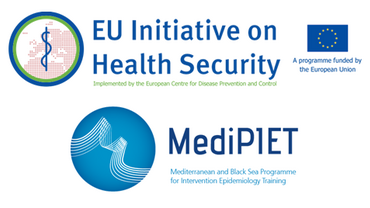Berlin hosts the 2025 Multivariable Analysis Module
From 17 to 21 February 2025, the Robert Koch Institute in Berlin hosted the annual Multivariable Analysis (MVA) Module of the ECDC Fellowship Programme. The event brought together EPIET, EUPHEM, PAE, and MediPIET fellows and nominated external experts.
The module aimed to equip fellows with essential knowledge in multivariable analysis, focusing on the practical application of regression models - including linear, logistic, conditional logistic, Poisson, negative binomial, and Cox regression. Participants explored foundational concepts such as Directed Acyclic Graphs (DAGs) and causal inference, which enabled them to formulate precise research questions and identify key confounders.
Interactive plenary sessions provided insights into the construction and interpretation of regression models and the principles underlying survival analysis. Complementing these lectures, small-group case studies allowed participants to apply theoretical concepts using the R programming language, encouraging hands-on learning and effective collaboration.
Throughout the event, wrap-up sessions and Q&A forums allowed participants to consolidate their learning, address uncertainties, and share their experiences.
The module drew on the expertise of nominated external experts from across Europe and the MediPIET partner countries. Fellows are expected to apply their skills to inform policy decisions, effectively communicate public health evidence, and contribute to the global fight against public health threats.
Background: Multivariable Regression Modelling
Regression modelling is a common method used in epidemiology to study diseases. It helps researchers identify connections between various factors and the likelihood of a disease occurring. Multivariable regression examines how one disease outcome is influenced by multiple factors, such as health, demographics, behaviour, and environmental exposures.







